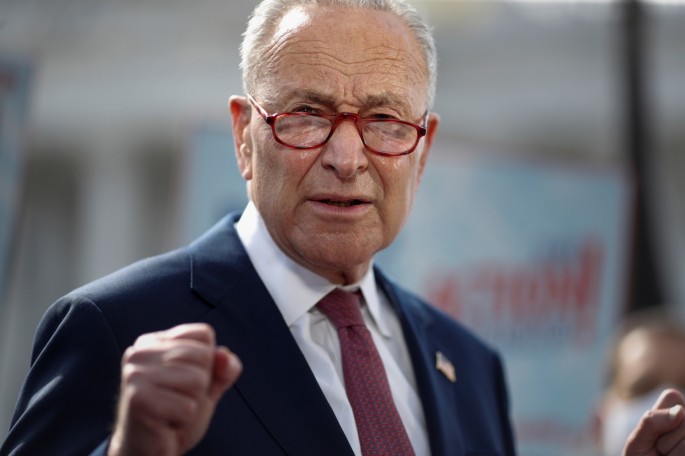Senate Majority Leader Chuck Schumer navigates a treacherous political tightrope, attempting to thread the needle between securing crucial aid for Ukraine and Israel while navigating a storm of internal Democratic dissent over proposed border policy changes. The whispers of discontent have grown louder, morphing into outright cries of "Terribly mistaken!" and warnings of a "depressed enthusiasm" from progressive voters.
Schumer's gamble - weaving stricter border provisions into the national supplemental package - aims to appease Republicans and secure their votes for the much-needed funding. However, this deal-making calculus has opened a chasm within his own party, with progressive senators like Bob Menendez and Alex Padilla fiercely denouncing the concessions as "Trumpian policies" and "anti-immigrant."
The anxieties aren't confined to the left flank. Beto O'Rourke, the Democratic contender for Texas governor, paints a dire picture of increased border crossings, tragic migrant deaths, and a deflated progressive base if the deal goes through. Cory Booker adds another layer of concern, highlighting the uncertainty of future political winds and who will wield the reins of enforcement under the proposed policies.
Republicans, meanwhile, play their hand, staking their support on "basic elements" like immediate asylum screenings, more detention beds, and a bolstered border patrol. Rumors swirl of the White House potentially conceding to nationwide expedited removals, mandatory detention for certain migrants, and even a resurrection of the Title 42 expulsion policy.
The pressure cooker is simmering, with time running out. Lawmakers were initially set to break for the holidays, but Schumer, bracing for political fallout, has instead canceled the recess, demanding continued negotiations and a vote next week. This decision reflects the urgency of the situation, both for Ukraine and for Schumer's fragile hold on party unity.
The ultimate outcome remains uncertain. Can Schumer stitch together a deal that appeases Republicans without alienating his progressive base? Or will this gamble backfire, fracturing the Democratic Party and jeopardizing Biden's future political prospects? The days ahead will hold the answer, revealing whether Schumer's tightrope walk leads to triumph or a spectacular political tumble.



























